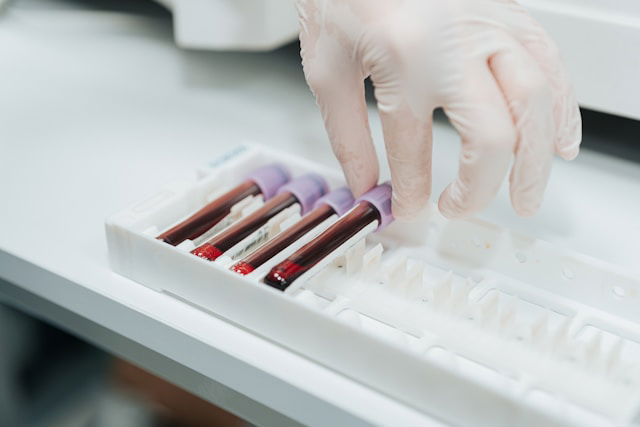
For almost 60 years, doctors have relied on blood cholesterol tests to predict heart disease risk.
But a new study led by researchers from Chalmers University of Technology in Sweden and Harvard University in the U.S. shows that measuring two specific markers in the blood—apoB and lipoprotein(a)—can offer a better, more accurate way to assess that risk.
According to the World Health Organization (WHO), heart disease is the leading cause of death around the world. Many of these deaths could be prevented by making healthy lifestyle changes and catching risk factors early. That’s why better tools to detect heart disease are so important.
Cholesterol is a fatty substance in the blood that helps build cells and produce vitamins and hormones. However, high levels of cholesterol can build up in blood vessels, leading to clots that cause heart attacks or strokes.
Cholesterol moves through the body in small particles called lipoproteins. Some lipoproteins, called “bad cholesterol,” deposit fat in the blood vessels. Others, called “good cholesterol,” help remove it.
Current cholesterol tests measure how much fat is in the blood, but not the number or type of lipoprotein particles carrying it. Researchers believed that measuring the number of these particles might provide a clearer picture of heart health.
The study included more than 200,000 participants from the UK Biobank who had no history of heart disease. The research team tracked these individuals for up to 15 years, measuring the number and size of their cholesterol-carrying lipoproteins.
They focused on particles containing a protein called apoB, which is found in all the harmful “bad cholesterol” carriers.
They found that apoB was the strongest predictor of heart disease. That’s because it shows the total number of “bad” lipoprotein particles, not just the amount of cholesterol they carry. This means that two people with the same cholesterol level could have very different risks, depending on how many particles are carrying that cholesterol.
The study also highlighted the importance of another lipoprotein called lipoprotein(a). This marker is mostly inherited and not affected by lifestyle. Although it makes up a small part of the total “bad cholesterol” in most people, very high levels can greatly increase heart disease risk in certain individuals.
Together, these two markers—apoB and lipoprotein(a)—could help doctors better identify patients at high risk. While regular cholesterol tests still work well for many people, about one in twelve patients might be getting an inaccurate result. Since up to 40% of first-time heart attacks are fatal, improving these tests could help save lives.
Researchers say that blood tests for apoB and lipoprotein(a) are already available and are affordable enough to be widely used. They hope these findings will lead to changes in healthcare and improve heart disease prevention worldwide.
If you care about heart health, please read studies about how eating eggs can help reduce heart disease risk, and herbal supplements could harm your heart rhythm.
For more health information, please see recent studies about how drinking milk affects risks of heart disease and cancer, and results showing strawberries could help prevent Alzheimer’s disease.
Copyright © 2025 Knowridge Science Report. All rights reserved.



